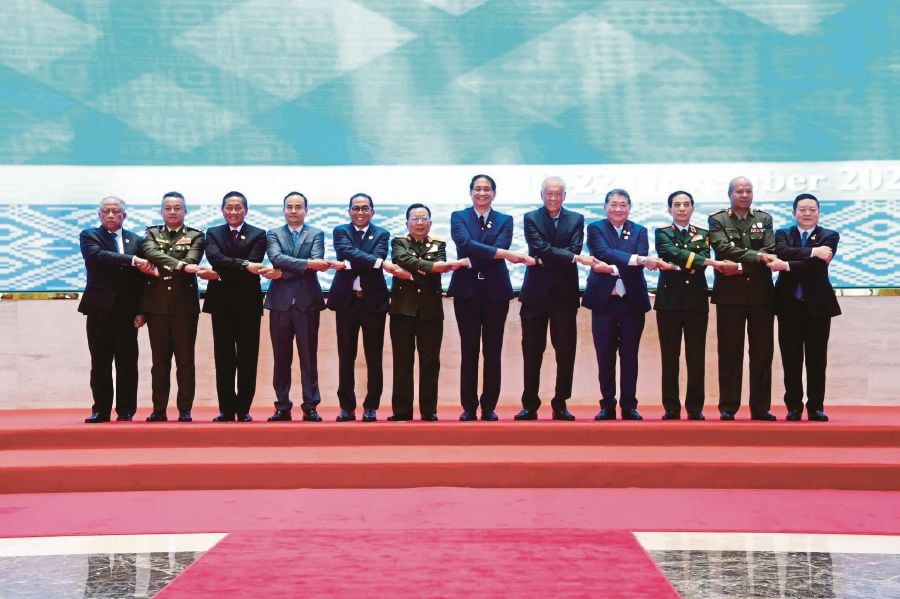
KUALA LUMPUR: Malaysia aims to provide a platform for constructive, open and progressive defence discussions with its strategic dialogue partners during its Asean chairmanship next year.
Defence Minister Datuk Seri Mohamed Khaled Nordin said this approach was part of Asean's efforts to address increasingly challenging geopolitical, security and defence issues at the global level.
With the theme "Asean Unity for Security and Prosperity", Khaled said Malaysia was determined to carry out its responsibilities as Asean Chair effectively and efficiently for each member state to continue safeguarding regional stability and security.
"It is Malaysia's hope to continue the achievements that have elevated Asean to greater heights, bringing benefits to the communities of member states and regional well-being," he said in a statement.
Khaled was in Vientiane, Laos, for the 18th Asean Defence Ministers' Meeting (ADMM) and the 11th ADMM-Plus, which concluded on Thursday.
He said at the end of the meeting, Laos handed over the ADMM and ADMM-Plus chairmanship to Malaysia, witnessed by the heads of delegation from each attending country.
"2025 will be a significant year for Malaysia. Not only will Malaysia chair Asean, but it will also mark the 10th anniversary of the establishment of the Asean Community, and Malaysia will launch the Asean Community Vision 2045," he said.
Malaysia has held the Asean chairmanship in 1977, 1997, 2005, and 2015, with each tenure seeing Malaysia play a crucial role in strengthening regional cooperation and enhancing Asean's economic integration.
Meanwhile, in a joint ADMM declaration, the delegates had among other aimed to strengthen centrality and unity, and the proactive role of Asean as the primary driving force in its relations and cooperation with its external partners in a regional architecture that is open, transparent and inclusive.
It also aimed to deepen defence and security cooperation and engagement between the ADMM and ADMM-Plus Countries with Asean at the centre, in order to effectively respond to common security challenges faced by the region.
It also underscored the significance of maintaining regional peace, stability, security, safety and freedom of navigation in and overflight above the South China Sea, including pursuing peaceful resolution of disputes in accordance with international law, including the 1982 UNCLOS, exercising self-restraint in the conduct of activities that would complicate or escalate disputes and affect peace and stability.
It also emphasised the need for the early conclusion of an effective and substantive Code of conduct in accordance with international law, including the 1982 UNCLOS while underlining the full and effective implementation of the Declaration on the Conduct of Parties in the South China Sea in its entirety.